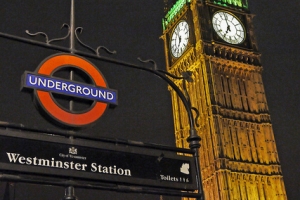Support migrant centric journalism today and donate

The UK Immigration Health Surcharge, which had been expected to double in December 2018, will increase on 8 January 2019 the Home Office has confirmed. The immigration health surcharge will increase from £200 to £400 per year for many UK visa categories including the Tier 2 visa, Tier 1 entrepreneur visa, Sole Representative visa and Tier 1 Investor visa categories. The UK visa fee for international students applying for the Tier 4 visa, those applying for the Tier 5 Youth Mobility Visa Scheme and for other Tier 5 visa applications will rise from £150 to £300 per year.
Sanwar Ali workpermit.com comment:
It seems that most migrants from outside the EEA will need to pay the increased immigration health surcharge. The UK must have amongst the highest (if not the highest) UK visa related fees in the World. For a large company to bring in a migrant on a Tier 2 visa with a partner and two children will be even more expensive now. For a five year Tier 2 visa for a large company to bring in the whole family of four from abroad it will cost the following:
Four Tier 2 Visa fees for up to five years. | £4,880 |
Certificate of Sponsorship Fee. | £199 |
Immigration Skills Charge for five years for main applicant. | £5,000 |
Immigration Health Surcharge for five years for four family members. | £8,000 |
Total cost for a family of four. | £18,079 |
In reality in many cases this does not cover all the costs. Many employers will need to apply for a Tier 2 sponsor licence, will have to pay advertising costs and will pay additional fees for priority visa processing. The total cost in Government visa fee related expenses could easily be over £20,000 in this situation.
Critics of the Immigration Health Surcharge have slammed the timing of the fee increases, which leaves UK visa applicants very little time to prepare and file an application. Migrants who make an application on or after 8 January, 2019 will be subject to the increased surcharges.
Immigration minister signs amendment order affecting UK visa applications
On 28 November, 2018 an Amendment Order authorising changes to the Immigration Health Surcharge had been approved by both Houses of Parliament. Had the Order been signed by Immigration Minister, Caroline Nokes, it would have come into force on 19 December, 2018 (21 days must pass before an Order can come into force after it is made).
However, Ms Nokes didn’t sign the Order until 18 December, 2018 delaying the fee increases until 8 January, 2019. The doubling of the controversial surcharge was originally announced back in February 2018.
Those opposed to the surcharge have suggested that it’s very unfair. People coming to the UK on a work related visa, such as the Tier 2 visa, already have to pay tax and NHS funding comes out of this tax and it seems that the increase to the Immigration Health Surcharge will make an unfair situation even worse.
Non-EEA migrants and Immigration Health Surcharge
The Immigration Health Surcharge is currently applicable to people from outside the European Economic Area (EEA) who are looking to live in the UK for a period exceeding six months for the purposes of work, study or joining family. It’s unclear at this stage if the surcharge will apply to EU citizens, following Britain’s exit from the bloc.
The Immigration Health Surcharge gives migrants access to a comprehensive range of NHS services, without incurring additional charges with the exception of prescription charges in England.
In a statement from the Home Office’s Migration Policy department, UK Visas and Immigration, they said: “The surcharge levels remain competitive compared with health insurance requirements in comparable countries.”
“For overseas students, the surcharge represents about 1% of the total cost of studying in the UK for a 3-year undergraduate course. The new surcharge rate is intended to better reflect the costs to the NHS of treating those who pay it,” the statement said.
Misleading claim of £220 million in extra NHS funding
As previously reported by Workpermit.com, it has been claimed that the NHS will receive an extra £220 million in funding as a result of the Immigration Health Surcharge increases.
The Department of Health and Social Care estimates that the NHS in England spends on average around £470 per surcharge payer every year. Their projections suggest that the increased charges may provide around an extra £220 million per year, with this money going straight back to NHS services.
However, it could be argued that the figure is misleading. The NHS has to frequently, either pay the immigration health surcharge for overseas workers, or lend money to healthcare workers to pay for this charge. There are also quite enormous government visa fees that have to be paid.
Lack of information on new UK Visa Health Surcharge
Despite the announcement back in February 2018 that the Immigration Health Surcharge would be doubled, neither the Home Office nor the Department of Health until recently specified an exact date for the increases.
The doubling of the Immigration Health Surcharge has been the subject of much confusion and speculation, particularly given the lack of an official statement from the Home Office or Department of Health.
Non-EEA UK visa applicants, including those applying for Tier 2 work visas, Tier 4 student visas and Tier 5 youth mobility visas, will now have to pay an extra £300 - £400 per year for the duration of their visa.
However, the increases do not affect permanent residents, who are not required to pay the surcharge. Certain vulnerable groups such as asylum seekers and modern slavery victims are also exempt.
Workpermit.com can help with Tier 2 visas, Sponsorship Licences, Tier 1 visas and other visas
If you need help with a Tier 2 Sponsor Licence, Tier 1 visas such as the Tier 1 Entrepreneur visa scheme workpermit.com can help. Call 0344 991 9222 for further details.
Workpermit.com has been in the visa business for thirty years, and has helped thousands of people to study, work, invest and live in the UK. We represent clients under Section 84 of the 1999 Immigration Act, and can advise and assist with your UK visa application.





















